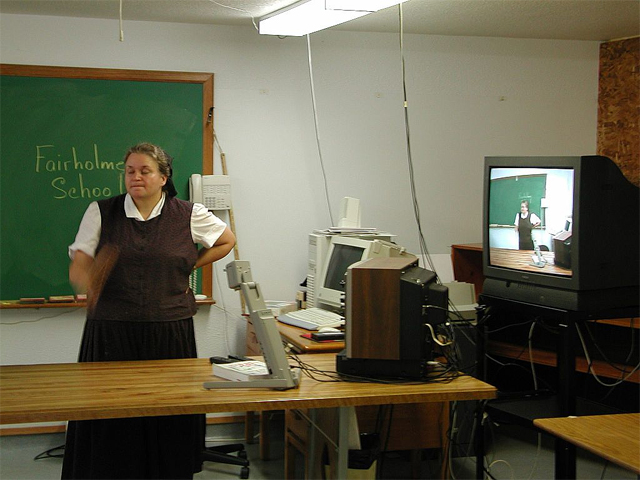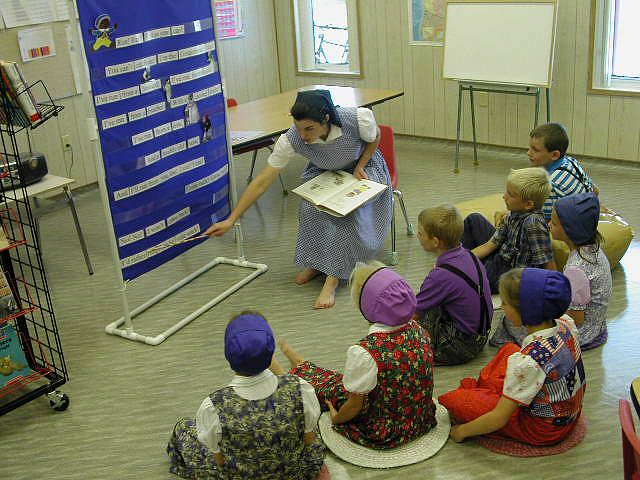An Alberta school district stretching from the outskirts of Calgary south to Lethbridge includes 17 Hutterite colony schools and over 365 students in them. Called the Palliser Regional Schools, the district has to confront a unique problem—supplying substitute teachers—for the schools on the rural colonies.

Headquartered in Lethbridge, the district has come up with a plan to attract potential substitute teachers who would be willing to work at the colony schools. According to an article last week in a Lethbridge news service, the administrator of the Hutterite colony schools for the district, Dan Ryder, and his associates decided to provide familiarization tours for potential substitute teachers.
Mr. Ryder, the Principal of Colony Schools for the district, recently offered what he called a “ride-along” for three new people on the district’s list of potential substitutes, one from Lethbridge, one from Calgary, and one from High River. The point of the tour was to familiarize the potential substitutes as to the locations of the schools and what to expect if called to teach in one of them.

Jean Brochu, a recent university graduate from Lethbridge, admitted he is hoping to get his foot in the door by making contacts from a substitute position. After the tour, he said he would be pleased to answer a call as a substitute at one of the colonies. He found the colony schools the tour visited to be different but, he added, “I don’t think as teachers we should be afraid of [being] different.” Whatever hesitations about teaching in colony schools he may have had before the tour, visiting them clearly had an impact on him.
The three substitute candidates and Mr. Ryder first stopped at the Wild Rose Colony School where they met Rebecca Holgate, who has 13 years of teaching experience, most recently for a year and a half at the colony. She told her visitors that at first she was most concerned about having enough time to prepare properly for instructing the children from all grades in a one-room-schoolhouse situation.

She soon learned that the most important thing about teaching in a colony school is to be flexible and to be willing to stray from prepared plans. She emphasized to the group that the teaching is a learning process—the new teacher must be willing to see what works with the students. There may be several different ways of meeting the needs of the Hutterite kids.
Mr. Ryder said that during the drives between the different colonies, he is commonly asked about dress codes, cultural differences, and how to interact with the German teachers at the colonies. Mr. Brochu was impressed with nuances among the cultural values of the Hutterites they visited. Some of the progressive teaching he saw at the colonies really impressed him.
The principal indicated that the assignments as substitutes may lead to permanent positions. The work can be challenging but he feels it is rewarding. “The kids love the teacher and the colony shows appreciation in so many ways of their English teacher,” he said.
Ms. Holgate told her visitors that one of the benefits of teaching in a colony school such as hers is the small number of students—she only has six. This allows the teacher to really get to know each of the students well. She compared her students to a family, since she teaches the same group of kids each year.
The news report concluded by providing Dan Ryder’s email address. People who want more information about his fam tours should feel free to contact him.